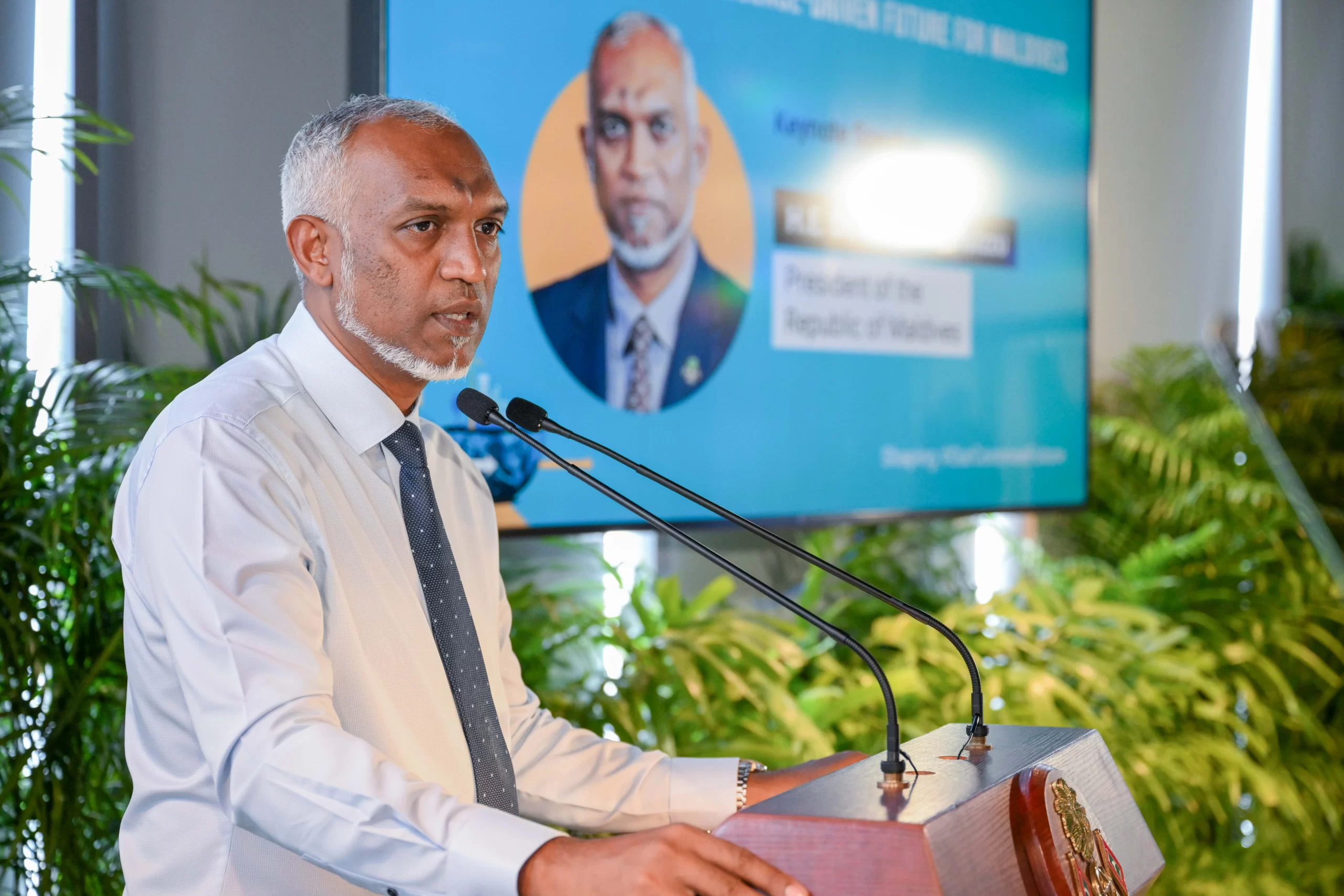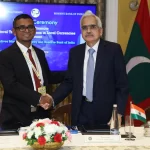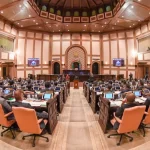MALE’, Maldives — President Dr. Mohamed Muizzu outlined a comprehensive vision for the nation’s digital future at the ‘Summit of the Future Side Event: A Vision for an Intelligence-Driven Future for Maldives’ today, presenting digitalization as essential to the country’s development. He emphasized that for a nation like the Maldives, scattered across the Indian Ocean, digital transformation is not a trend but a necessity.
“Digitalization is the cornerstone of our national vision,” Dr. Muizzu said, underscoring the importance of integrating digital tools into all aspects of Maldivian life. He acknowledged the skepticism surrounding investments in digital infrastructure in developing nations but firmly positioned it as a priority for his administration. He argued that digitalization is not reserved for wealthy nations; rather, it is an essential tool for small, vulnerable countries like the Maldives to build resilience.
Highlighting the steps already taken, the President pointed out that 100% of the Maldivian population has access to high-speed internet, achieved through considerable investment in digital infrastructure over the past decade. He noted that this infrastructure is only the foundation and emphasized the importance of digital literacy, especially for youth and women. Through initiatives like the Digital Maldives Program, the government is working to ensure that citizens become not just consumers but creators in the digital economy.
Dr. Muizzu also framed digitalization as a means to tackle the Maldives’ vulnerability to climate change. He cited early warning systems for natural disasters and smart technologies for resource management as examples of how digital tools are already aiding the country. The ability to offer essential services like healthcare, education, and government services remotely through digital platforms, he explained, is especially crucial for a nation of islands, allowing the Maldives to leap over geographical barriers.
Economic diversification is another key focus of the President’s digital agenda. Digitalization, he said, is enabling Maldivians to explore new opportunities through e-commerce, digital payments, and entrepreneurship. The goal, he added, is to create a thriving ecosystem for start-ups and small businesses, which will in turn boost the national economy.
In terms of governance, Dr. Muizzu highlighted the role digital systems play in reducing corruption, enhancing transparency, and streamlining public services. The President emphasized that this transformation benefits both citizens and investors, creating a more accountable and efficient public service framework.
While optimistic about the benefits of digitalization, the President did not shy away from addressing the challenges it brings. Issues like cybersecurity, data privacy, misinformation, and the digital divide were identified as areas that require international cooperation. He affirmed that the Maldives is committed to working with global partners to ensure that digitalization is inclusive and equitable.
Dr. Muizzu also revealed future plans, including the creation of a National Development Master Plan to establish innovation hubs and technology parks across the country. He spoke of the Development Bank of Maldives, an institution he spearheaded to finance projects focused on digital innovation, sustainability, and socio-economic development. Additionally, he announced the expansion of the National Centre for Information Technology and the establishment of a National Cybersecurity Agency to safeguard the country’s digital infrastructure.
On the subject of advanced technologies, the President discussed the exploration of 5G technology, noting plans to implement smart road systems and use drones for medical supply deliveries. These initiatives, he said, would open new opportunities for various sectors, including academia and industry.
In closing, Dr. Muizzu reminded the audience that the Maldives has a history of resilience, and digitalization is key to ensuring the nation’s prosperity in a rapidly evolving world. He expressed gratitude to the United Nations team in the Maldives for their role in supporting the country’s digital development and reiterated his call for continued international cooperation.
“Digitalization is not just a tool; it is the key to unlocking a brighter, more sustainable future,” Dr. Muizzu concluded, urging the global community to see this as a call to action rather than a moment of reflection.
He closed by emphasizing that the success of this vision will be measured not by the technology itself but by how effectively it improves the lives of the Maldivian people, leaving behind a legacy of resilience and innovation.












